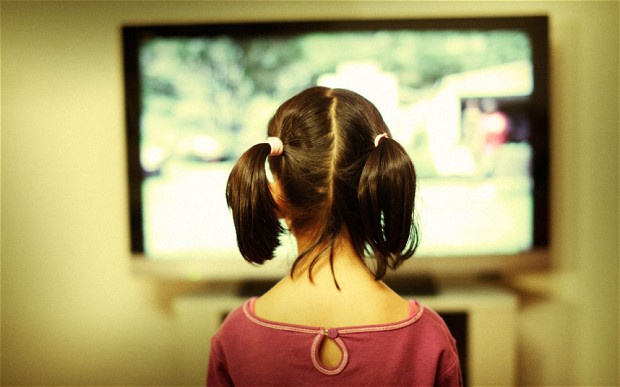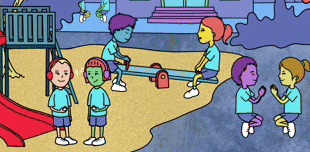Medical Daily
November 25, 2013

Once upon a time, the trumpeting intro to CBS’s Sunday Morning with Charles Kuralt sent children scurrying from the room, to play elsewhere. “Cartoon Day” was yesterday, and televisions offered nothing but background, an aural carpeting of jingles and happy talk. Outside were games of imagination and challenges of derring-do.
Since then, television has grown larger in America, in both size and scope—i.e., larger sets with far more channels. To the detriment of children’s health, every day is cartoon day.
Aside from contributing to childhood obesity and other concerns, television may hamper a child’s theory of mind development, the ability to attribute mental states to the self and to others. Investigators at Ohio State University interviewed and tested more than 100 preschool children and their parents for a study appearing Thursday in the Journal of Communication. They found a strong link between poor development of theory of mind and exposure to television running in the background and in a child’s bedroom.
Lead investigator Amy Nathanson says this disrupted ability to perceive the mind of others may cause impaired social behavior seen in previous study of television’s influence on children.
“When children achieve a theory of mind, they have reached a very important milestone in their social and cognitive development,” Nathanson said in a statement. “Children with more developed theories of mind are better able to participate in social relationships. These children can engage in more sensitive, cooperative interactions with other children and are less likely to resort to aggression as a means of achieving goals.”
Nathanson and her colleagues gave children tasks to assess capacity for understanding mental states occurring outside of their own minds, thoughts and beliefs likely experienced by others, which influence behaviors. Even after controlling for age and socioeconomic status, investigators found a link between increased exposure to background television and weaker understanding of mental states. Yet, they also found that theory of mind development improved when parents talked with them about television, rather than merely leaving them to their (electronic) devices.
As past work shows that siblings help improve one’s development of theory of mind, Nathanson speculated about several reasons television might hamper growth of this mental capacity. “Television may displace opportunities for richer social interaction that would otherwise promote [theory of mind],” the investigators wrote. “Prior work has found that [such] development is facilitated by hearing mental-state language in the home, engaging in pretend play, and interacting with siblings; however, when background television is present, parents engage with their children less, thereby reducing the opportunity for conversation.”
 Daily Stormer The Most Censored Publication in History
Daily Stormer The Most Censored Publication in History


